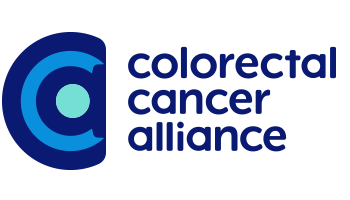
USPSTF Recommends Lowering Age for Colorectal Cancer Screening, Mandating Insurance Coverage for Most Preventive Procedures

In an updated recommendation for colorectal cancer screenings, the U.S. Preventive Services Task Force (USPSTF) changed the starting age for screenings from 50 years to 45 years. The recommendation requires insurance companies to cover preventive procedures such as colonoscopies and stool tests.
The U.S. Preventive Services Task Force (USPSTF) released a new recommendation statement lowering the age from 50 years to 45 years for starting colorectal cancer screenings in patients with an average risk for the disease. This replaces the USPSTF’s 2016 recommendation of screening individuals between the ages of 50 to 75 years.
The updated recommendation comes after various studies demonstrated the effectiveness of preventive care services for colorectal cancer in both men and women. Additionally, the incidence of colorectal cancer increased by nearly 15% from 2000-2002 to 2014-2016 in adults aged 40 to 49.
“This is one of the only cancers that is actually preventable if we're doing on-time screening every time,” said Trudy Loper, Senior Director of Screening at the Colorectal Cancer Alliance, in an interview with CURE®. “So this reduction in age for those persons who are an average risk of colorectal cancer means millions of lives could be saved if those cancers are caught earlier.”
According to the recommendation statement published in JAMA Oncology, the expert members of the USPSTF conducted a systematic review of benefits and harms of screening for colorectal cancer in adults ages 40 and above, and found evidence of moderate benefit with screenings in individuals from ages 45 to 49.
“The really important take home message for people to remember is colorectal cancer screening saves lives,” said Dr. John Wong, Interim Chief Scientific Officer at Tufts Medical Center in Boston, a primary care physician and member of the USPSTF, in an interview with CURE®. “And it can be an asymptomatic disease because the colon is very large and long. And because of that, precancerous lesions and cancerous lesions can get very large and until (people) develop symptoms, colorectal cancer screenings can detect those cancers, prevent them or detect them at an earlier stage.”
The recommendation applies to asymptomatic adults age 45 or older who are at average risk of colorectal cancer, meaning they have no prior diagnosis of colorectal cancer, adenomatous polyps or inflammatory bowel disease, and no family history of known genetic disorders that predispose them to risk of colorectal cancer, such as Lynch syndrome or familial adenomatous polyposis.
In terms of who is at risk for colorectal cancer, age is one of the most significant factors. Ninety-four percent of new cases of colorectal cancer occur in adults age 45 or older, according to the recommendation statement. Additionally, incidence of the disease is higher in Black adults and American Indian and Alaskan Native adults, people with a family history, men and people with other risk factors (obesity, diabetes, long-term smoking, unhealthy alcohol use).
All Eligible Adults Should Get Screened
“All adults who are 45 to 75 years old should be screened,” said Wong. “Rates of colorectal cancer are higher in men, Black people and adults with a family history of colorectal cancer. And that's not to say it wouldn't benefit others who are at average risk that don't have those risk factors. It's the third leading cause of cancer deaths, and those deaths are potentially preventable. We know that Black adults get colorectal cancer more often and are more likely to die from colorectal cancer than people of other races, and ethnicities.”
The recommended screening strategies include high-sensitivity guaiac fecal occult blood tests (HSgFOBT) or fecal immunochemical tests (FIT) every year, stool DNA-FIT every one to three years, computed tomography colonography every five years, flexible sigmoidoscopy every five years, flexible sigmoidoscopy every 10 years plus annual FIT and colonoscopy screenings every 10 years. The recommendation does not include serum tests, urine tests or capsule endoscopies.
Wong addressed any concerns older adults may have that they may be pushed aside as the screening pool grows with these recommendations.Most notably, he said, patients in an older age group should continue to get screened.
“If (a patient has) never been screened, yes, by all means, do get screened, the evidence is quite solid that screening helps save lives,” said Wong. “And if they've been screened previously, they should recheck with their clinician, whether it's time to be rescreened, and again, there are a variety of very good options depending on a patient's preferences about what kind of test where the test is done, what kind of preparation is necessary, how often or frequently they would need a test and whether a follow-up test would be needed if the initial one is positive.”
Check With Insurance Providers
Moreover, Loper noted, patients should also be informed of their options for insurance coverage related to colon cancer screenings, as the new recommendation mandates insurance coverage for patients within the updated age range.
“Patients should know that with this change, in an ACA compliant plan, that their health insurance providers should be providing coverage starting at that minimum age of 45,” said Loper.
Patients should check with their insurance provider, Loper noted, because it will likely take some time for their providers to enact this policy.
“It's one of those things that we're advocating amongst our own community, for people to go ahead and call their provider now and ask, ‘What is your plan for implementing this? When will it be included? Are there other any other questions that I should know about as we go through this?’” he highlighted.
For more news on cancer updates, research and education, don’t forget to




